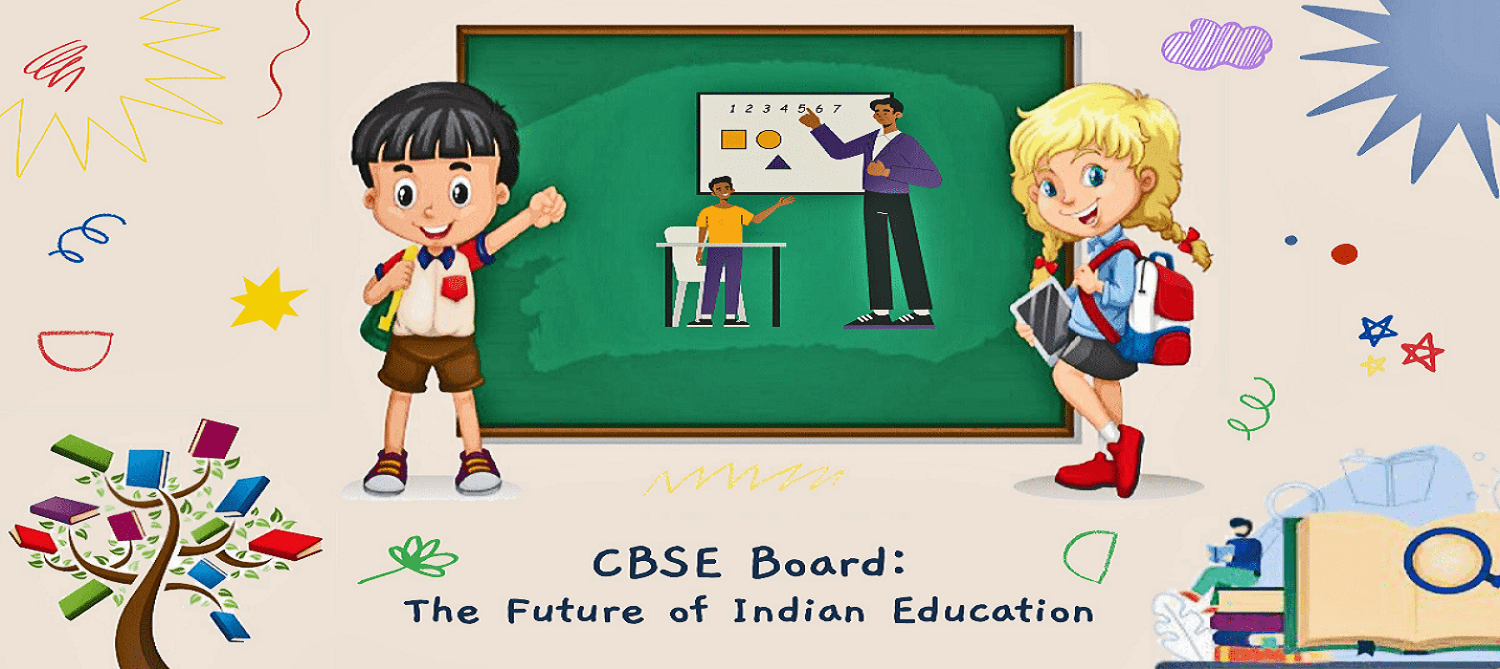The Future of CBSE Education: Emerging Trends and Innovations
Education is the foundation of a better future, and the future of CBSE education is set to be more dynamic, innovative, and student-centric. As the world rapidly shifts toward digitalization and global connectivity, CBSE (Central Board of Secondary Education) is adopting new trends and technologies to prepare students for an evolving world.
From experiential learning to artificial intelligence (AI) in classrooms, the future of CBSE education promises a shift from rote learning to skills-based education. The board’s efforts are in sync with the goals of the National Education Policy (NEP 2020), which emphasizes holistic, inclusive, and experiential learning.
In this article, we delve into the key trends and innovations shaping the future of CBSE education, how these changes will benefit students, and how schools are gearing up for this transformation.
Why is CBSE Education Evolving?
The world is changing rapidly, and education must keep up. The future of CBSE education is driven by the need to prepare students for global opportunities, modern careers, and an ever-changing world.
Here’s why CBSE is embracing change:
Technology Integration: Digital learning tools, AI, and virtual classrooms are transforming education.
Focus on Skills: The world needs problem-solvers, critical thinkers, and creative minds.
Global Competitiveness: Students need to be ready for global job markets and higher education abroad.
Personalized Learning: Every student learns differently, and education must adapt to their needs.
Implementation of NEP 2020: The National Education Policy (NEP) emphasizes a shift from rote memorization to holistic, skills-based learning.
With these changes, CBSE aims to create a future-ready education system where students not only excel in exams but also thrive in life.
Emerging Trends in CBSE Education
The future of CBSE education is being shaped by several emerging trends. These trends are aimed at transforming classrooms into hubs of creativity, collaboration, and critical thinking.
1. Digital Learning & Smart Classrooms
Technology is the biggest driver of change in CBSE schools. With the rise of online learning platforms, interactive whiteboards, and educational apps, learning has become more engaging.
Key Features of Smart Classrooms:
- Interactive whiteboards and multimedia tools.
- Access to online resources, digital libraries, and e-books.
- Personalized learning apps that cater to the student’s pace and learning style.
- Benefits:
- Makes learning fun and interactive.
- Students can access lessons from anywhere.
- Encourages self-paced learning, helping students master difficult concepts.
2. Experiential Learning & Project-Based Education
The traditional "chalk-and-talk" method is being replaced by experiential learning, where students learn by doing. CBSE schools are focusing on real-world experiences, hands-on projects, and practical problem-solving.
Examples of Experiential Learning:
- Science projects and robotics workshops.
- Hands-on activities like gardening, cooking, and model-making.
- Field visits, industry internships, and nature walks.
- Benefits:
- Improves retention and understanding of concepts.
- Develops critical thinking and problem-solving skills.
- Makes learning enjoyable and meaningful.
3. Artificial Intelligence (AI) and Machine Learning
AI is revolutionizing education by making it more personalized. AI-powered learning platforms analyze student performance and offer customized feedback.
Examples of AI in Education:
- AI-driven apps like Byju's, Khan Academy, and Coursera.
- Personalized assessments based on student strengths and weaknesses.
- AI-powered chatbots for student support and guidance.
- Benefits:
- Personalized learning for each student.
- Students get instant feedback, helping them improve in real-time.
- Teachers save time with AI-powered administrative tools.
4. Coding and Robotics as Core Subjects
With NEP 2020 encouraging the inclusion of coding from a young age, CBSE schools are introducing coding and robotics as part of the core curriculum. This is vital for preparing students for careers in AI, machine learning, and software development.
How Schools Are Implementing This Trend:
- Introducing coding platforms like Scratch, Python, and Blockly.
- Conducting robotics workshops and competitions.
- Offering programming courses for primary, middle, and senior school students.
- Benefits:
- Builds logical thinking and computational skills.
- Prepares students for 21st-century careers.
- Fosters creativity, innovation, and design thinking.
5. Life Skills and Emotional Intelligence (EQ) Development
The future of education is not just about academic skills. CBSE is now focusing on life skills and emotional intelligence (EQ) to help students face real-world challenges.
Life Skills Taught in CBSE Schools:
- Time management and stress management.
- Leadership and teamwork through group projects.
- Emotional resilience and empathy training through mindfulness and meditation.
- Benefits:
- Helps students manage stress and emotional well-being.
- Prepares students for the social and emotional demands of higher education and careers.
How CBSE Schools Are Preparing for the Future
CBSE schools across India are already taking significant steps to prepare students for the future. Here’s how schools are aligning with the future of CBSE education:
Teacher Training: Teachers are being trained in experiential learning, technology integration, and life skills development.
Infrastructure Upgrades: Smart classrooms, robotics labs, and AI-driven learning systems are being implemented.
Collaboration with EdTech Companies: Schools are partnering with online platforms like Byju's, Unacademy, and Microsoft Teams for remote learning.
Focus on Student Well-Being: Schools are emphasizing mental health, counseling, and emotional well-being.
These initiatives ensure that CBSE schools remain at the forefront of modern education.
The Role of NEP 2020 in Shaping the Future of CBSE Education
The National Education Policy (NEP) 2020 aims to revolutionize the education system, and CBSE is leading the way in implementing these changes.
Key NEP 2020 Changes in CBSE Schools
Multilingual Learning: Emphasis on mother tongue-based education in early years.
Shift from Exams to Assessments: Focus on conceptual understanding, not rote memorization.
Coding from Grade 6: Early introduction of coding and computational skills.
Blended Learning: A mix of online and offline learning for flexibility and personalization.
These reforms ensure that students are equipped for global challenges and ready to face real-world situations.
Benefits of the Emerging Trends in CBSE Education
The future of CBSE education is not just about academics. The new trends aim to make students future-ready and well-rounded individuals.
1. Student-Centric Learning: Students can learn at their own pace, improving understanding and retention.
2. Skills for the 21st Century: Students master essential skills like critical thinking, coding, and communication.
3. Mental Well-Being: Emphasis on mental health, mindfulness, and stress management.
4. Real-World Readiness: Students are prepared for higher education, global jobs, and future careers.
Why Parents Should Care About the Future of CBSE Education
As parents, it’s essential to know how CBSE is evolving to prepare students for the future. Here’s why it matters:
Future-Proof Skills: Your child will gain critical skills like coding, logical reasoning, and emotional resilience.
Better Academic Success: With experiential learning, students retain knowledge better and perform well in exams.
Improved Mental Health: Mindfulness and counseling help students manage stress, anxiety, and emotional challenges.
By choosing CBSE education, parents are investing in their child’s future success.
FAQs
1. What changes are happening in the future of CBSE education?
Ans - The future of CBSE education includes experiential learning, coding as a core subject, AI-driven learning, and life skills training.
2. How will NEP 2020 impact CBSE education?
Ans - NEP 2020 introduces changes like blended learning, multilingual education, and a shift from rote learning to skills-based education.
3. How will coding help students in the future?
Ans - Coding helps students develop computational thinking, problem-solving, and design skills, essential for future careers in AI, robotics, and technology.
4. Will CBSE schools offer emotional well-being support?
Ans - Yes, schools are introducing mindfulness, meditation, and emotional resilience programs to support mental health.
Conclusion
The future of CBSE education is brighter than ever. With a focus on experiential learning, AI-driven education, and emotional well-being, CBSE is redefining the learning experience for students. These emerging trends and innovations ensure that CBSE students are not just exam-ready but also future-ready.
If you're looking for a school that embraces the future of education, consider exploring the innovative curriculum at SSRVM.

